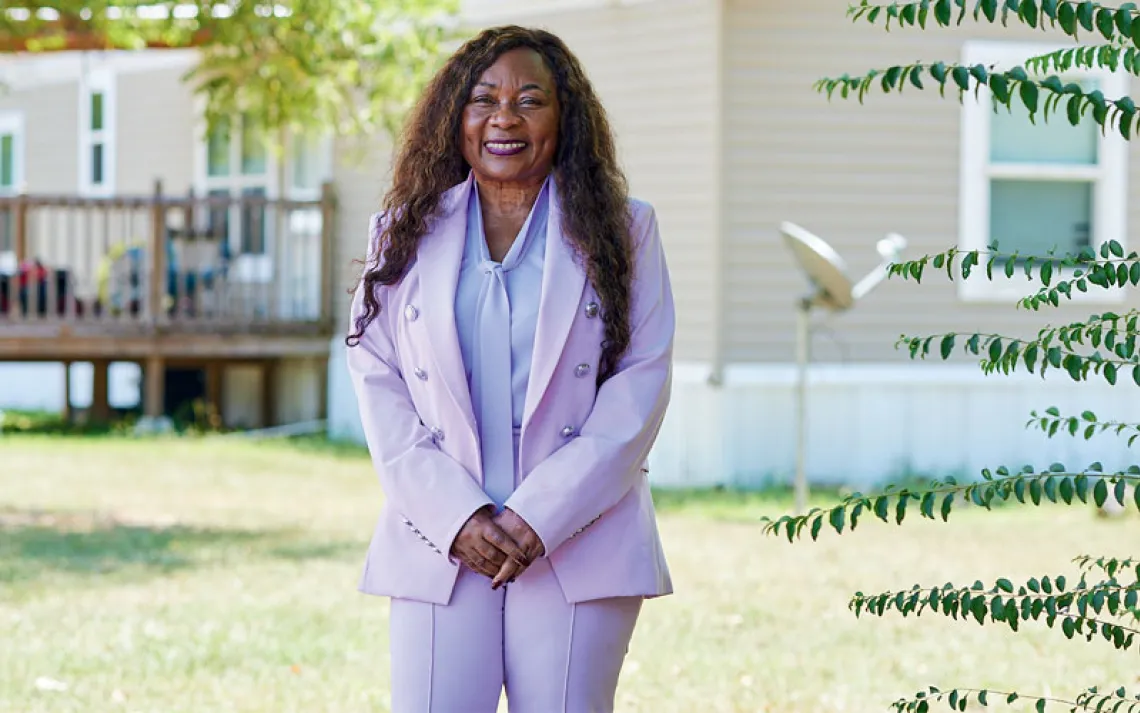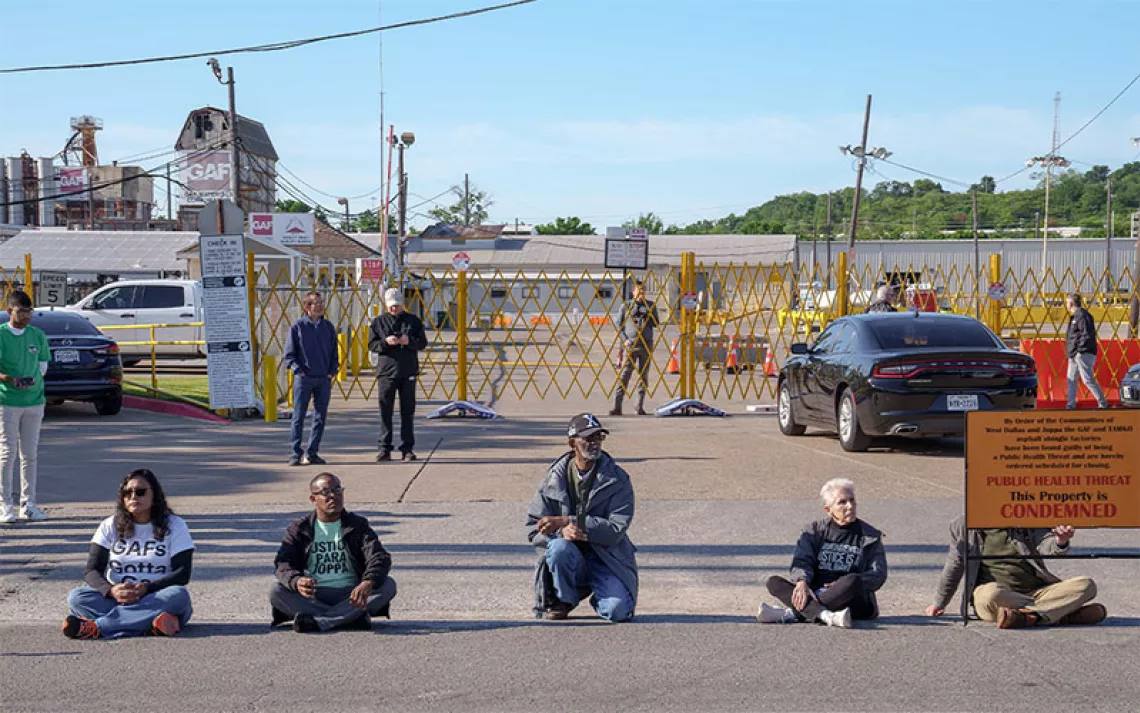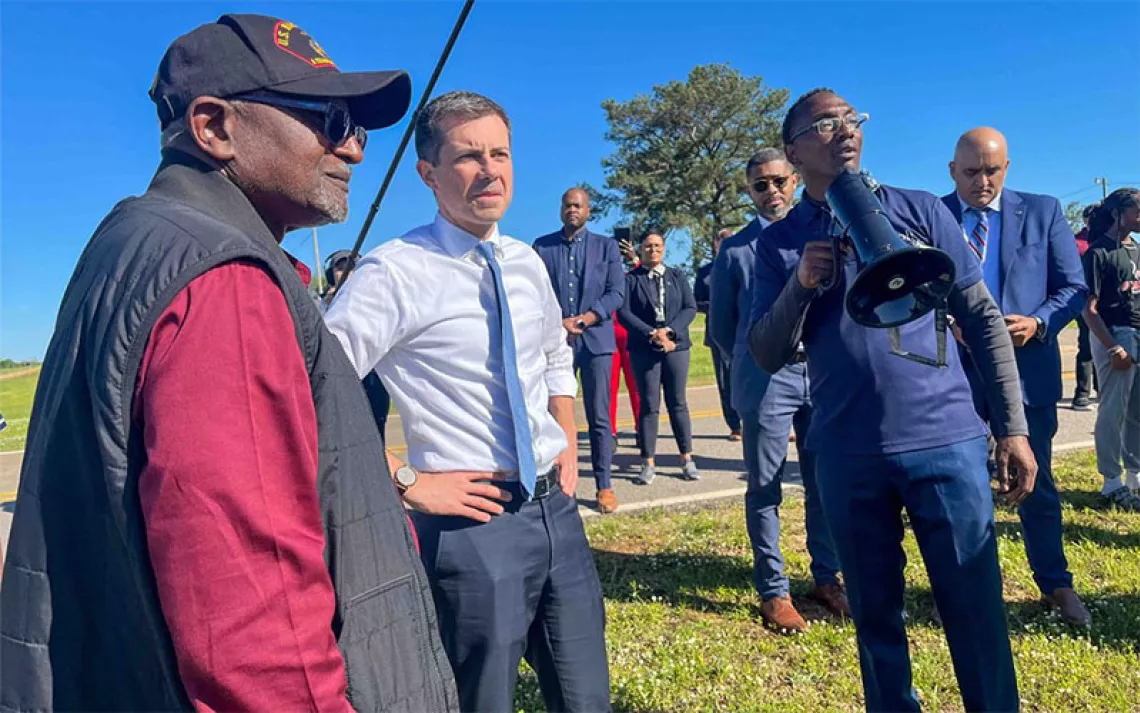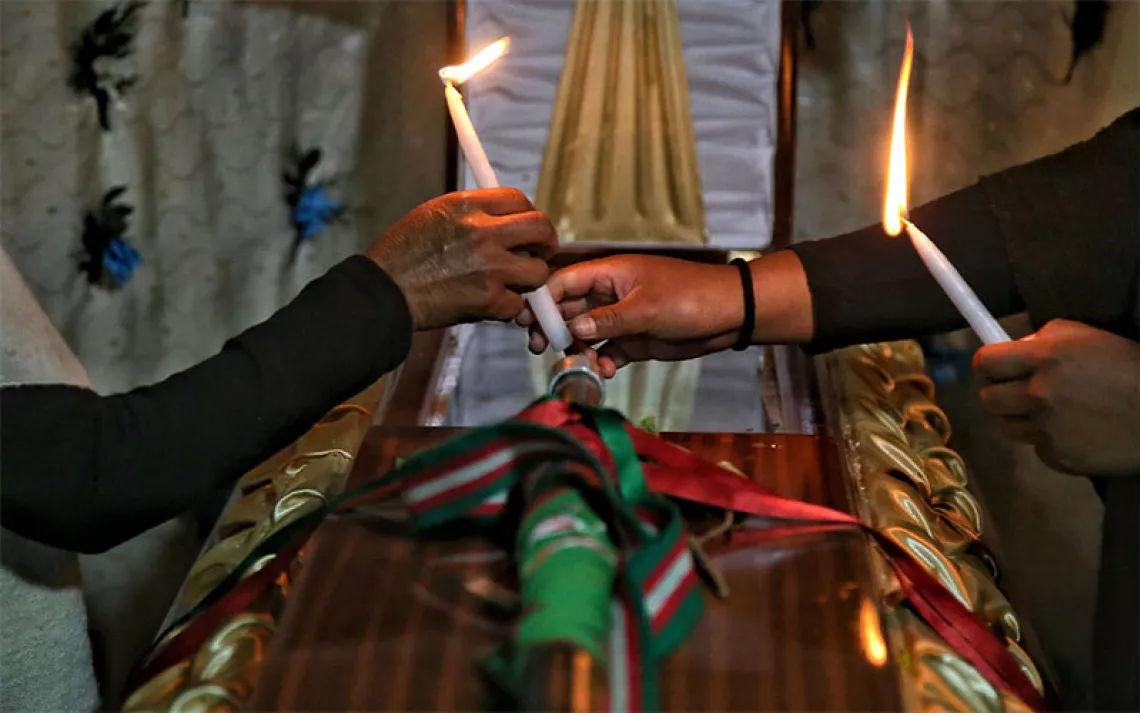From Ordinary to Extraordinary: Kimiko Hirata, Anti-Coal Activist
Goldman Prize recipient recognized for efforts to halt Japanese coal power

Photo courtesy of Goldman Environmental Prize
On March 11, 2011, Kimiko Hirata had taken the day off work to attend her young son’s graduation from preschool. This turned out to be a lucky stroke. When Japan’s largest-ever-recorded earthquake struck that afternoon, she was able, in the aftermath, to get herself and her children safely back to their home just outside Tokyo. But the feeling of security did not last long.
By nightfall, it became clear that the massive tsunami that followed the earthquake had set off several nuclear meltdowns at the reactors of the Fukushima Daiichi power plant. Fearing radioactive fallout, Hirata fled the capital with her children and spent a week at a hotel in Kyoto watching the news. She could not know then that the events unfolding on-screen would reverberate in unexpected ways in her own life and set her on a course to becoming a formidable anti-coal activist. On Tuesday, Hirata was awarded the prestigious Goldman Environmental Prize for her efforts to block her country’s post-disaster ramp-up to coal power.
Hirata had what she describes as a conventional childhood. Her father was a businessman, her mother a housewife. Above all, they valued “a steady, normal life.” When she went to college in the early 1990s, she had no real aspirations beyond becoming a cog in the humming machine of the Japanese economy.
In 1992, the United Nations held the Rio de Janeiro Earth Summit. Stories about the degradation of natural systems filled the news, and for the first time, Hirata learned about climate change. That human beings could have such a destructive impact on the entire planet shocked her. She started reading books on the subject, one of which was Al Gore’s just published Earth in the Balance. Reading that proved to be life-altering. “The more I knew,” Hirata says, “the more I couldn't ignore the issue.”
But environmental activism was far outside the realm of her experience, and while intrigued, Hirata didn’t know how to channel her interest. “I tried to look for a way, but I couldn’t find it, and I had no confidence,” she says.
Upon graduating, Hirata took a job at a publishing house. She kept reading books about the environment, and she began to learn English, knowing that if she ever got the chance to work on a global issue like climate change, it would be a necessity. Slowly, she pieced together a plan. She poured over a directory of US NGOs she had found at the library, and one by one she faxed the organizations that worked on climate change. Eventually, her diligence paid off, and she landed an internship with the Climate Institute in Washington, DC. The time had come: In 1996, she quit her job and relocated to the United States for a year.
Hirata made the most of the short stint. Besides working for the Climate Institute, she volunteered with the National Water Foundation and for a Smithsonian program on biodiversity. She also took an NGO management course and studied English. She returned to Japan just in time for the Kyoto climate summit in 1997. With support from the Climate Institute, she formed the Kiko Forum to help generate support for the Kyoto Protocol, the first global treaty to cut greenhouse gas emissions. When the conference ended, she founded the Kiko Network, a Japanese NGO dedicated to halting climate change.
For Hirata, it was a hectic but enormously satisfying time. Her organization was one of the few in the country to be tracking the Japanese government’s commitments to the Kyoto Protocol. She was immersed in wonky, policy-driven work. Looking back, though, she has mixed feelings. “I was very passionate about the work, but we were not that strategic,” she says. “We’d just write press releases saying that government policy was wrong, and that we should do this and that, but we didn't make a big impact.”
Then in 2011, the twin disasters of the earthquake and tsunami befell the country. Up until that point, Japan had been generating about 30 percent of its electricity from nuclear reactors. In the wake of Fukushima, the government shut down most of its nuclear facilities, and nuclear energy became deeply unpopular among the Japanese public. The country faced an energy crisis, and the government’s solution was to ramp up coal power. Within a year, it was soliciting bids for the construction of new coal power plants. By 2015, 50 new coal plants were planned, with a combined capacity of 23,200 megawatts.
Watching these developments, Hirata realized that the consequences would be disastrous for the planet. Burning coal is responsible for 46 percent of the world’s carbon dioxide emissions and accounts for 72 percent of total greenhouse gas emissions from the electricity sector. It’s the single biggest contributor to climate change.

Make every day an Earth Day
Get articles like this one sent directly to your inbox.
With this action you affirm you want to receive Sierra Club communications and may vote on policy designated by the Sierra Club Board.
For the second time in her life, Hirata found herself at an important crossroads. The Kiko Network needed to rapidly shift its priorities as well as its strategy. “I was a policy person used to talking with legislators or government officials and reading documents, but to fight against new coal, I knew the same approach would not work,” Hirata says. To counter the coal buildout, the Kiko Network would need to start a grassroots movement.
She teamed up with a Greenpeace researcher to publish a study on the negative health impacts of coal pollution, and she began networking in communities near potential coal plants. There was no one recipe for success. She eventually found that by working with journalists, concerned community members, local politicians, or some combination of the three, she was able to recruit campaigners who could mobilize residents to attend local hearings and protest plans for new coal plants.
By 2019, she and her organization had succeeded in blocking a total of 13 planned coal plants, preventing 7,030 megawatts worth of coal power plants from being built—nearly 40 percent of Japan’s planned new coal plant capacity—and averting the emission of 42 million tons of CO2 per year.
The Kiko Network also joined the fossil fuel divestment movement and started pressuring Japanese companies to stop financing coal. More than 10 Japanese coal plant developers—including Mitsubishi, Itochu, Marubeni, Sojitz, Sumitomo, Mitsui & Co., Mizuho Financial Group, Mitsubishi UFJ Financial Group, Sumitomo Mitsui Banking Cooperation, Sumitomo Mitsui Trust Bank, Dai-ichi Life, Nippon Life, and Meiji Yasuda Life—have announced that they will no longer develop or finance new coal projects.
As the third-largest importer of coal and the fifth-largest carbon emitter in the world, Japan still has a long way to go. But unlike when she first started as an activist, Hirata says that public awareness about climate change has reached new levels, and the political will to pursue renewable energy is growing. “It's much easier now for us to talk about coal and climate change,” she says. “Finally, the public is starting to see that renewable energy has to be the way to supply electricity.”
 The Magazine of The Sierra Club
The Magazine of The Sierra Club



